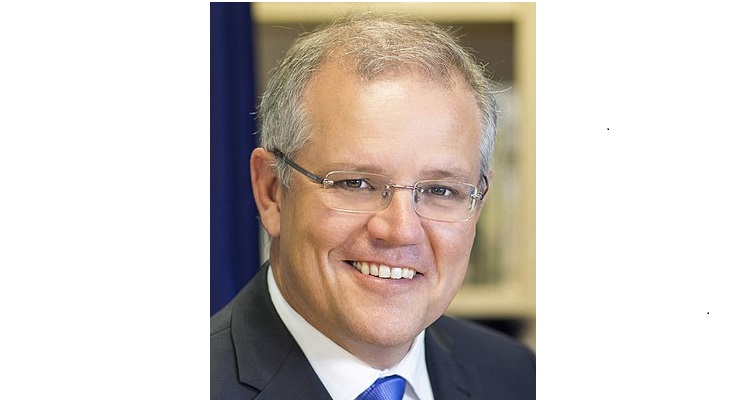
Australia lawmakers Friday elected Treasurer Scott Morrison as the next prime minister in a ballot that continues an era of extraordinary political instability.
Morrison defeated the key challenger Peter Dutton, a former Cabinet minister, by a vote 45-40.
Dutton’s supporters had forced incumbent Prime Minister Malcolm Turnbull to hold the leadership ballot. Turnbull did not contest the ballot and later confirmed his intention to quit politics.
“I’ll be leaving the Parliament … not before too long,” he told reporters.
His resignation would cause a by-election that could cost the government its single-seat majority. It could also encourage Morrison to soon call general elections.
Dutton’s failure prevents the Australian policy shifting to the hard right, although there has been little policy discussion in the leadership crisis.
This is thesixth change of prime minister in 11 years,an era of extraordinary political instability.
Australians ‘shaking their head’
Turnbull condemned Dutton supporters for bringing down his leadership in an intense and bruising campaign, which the prime minister described as “an insurgency,” which went public Tuesday.
“Many Australians will be shaking their head in disbelief at what’s been done,” Turnbull said.
Turnbull would then become the fourth prime minister to be dumped by his or her own party before serving a full three-year term since the revolving door to the prime minister’s office started in 2010. The trend is universally hated by Australians.
Lawmakers fear backlash
Public anger became apparent overnight with windows broken at the Brisbane office of Dutton, Turnbull’s main rival in his government.
Dutton had told the prime minister that a majority of Liberal Party lawmakers, at least 43, don’t support his leadership. But Dutton’s supporters on Thursday could not find 43 lawmakers prepared to sign their names to a petition demanding a leadership ballot.
An explanation could be that some lawmakers fear they will be punished by voters if they put their names to dumping Turnbull. The ballot to choose a prime minister is secret, so lawmakers don’t have to declare which candidate they voted for. Many later lie that they backed the winner.
Support for ousting Turnbull might also have waned because he warned Thursday he would quit politics rather than ask his party again for its support in a ballot. His resignation from Parliament would force a by-election that could cost the government its single-seat majority. The resignation could also push his successor into immediately calling general elections.
The party’s federal executive had intervened, telling a defiant Turnbull that the state branches unanimously wanted the leadership crisis resolved Friday.
Some lawmakers who were against the change of prime minister said they had agreed to sign the petition in a bid to end the impasse.
“I am being pressured, beyond any comprehension, I am being pressured to put my name on that list so it can bring the party room to a meeting,” staunch Turnbull supporter Scott Buchholz said Friday.
Turnbull had defeated Dutton 48-35 in a surprise vote Tuesday. Turnbull initiated the ballot in the hope of ending speculation that his government had lost faith in him in the face of poor opinion polling. Several ministers have since resigned and told him that most of the government wanted a new leader.
Opposition Labor Party leader Bill Shorten told Parliament on Thursday it was evidence that “Australia no longer has a functioning government.”
“The Liberal Party, whatever it does today and tomorrow, is irreparably split,” Shorten said.
Leave a Reply